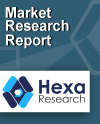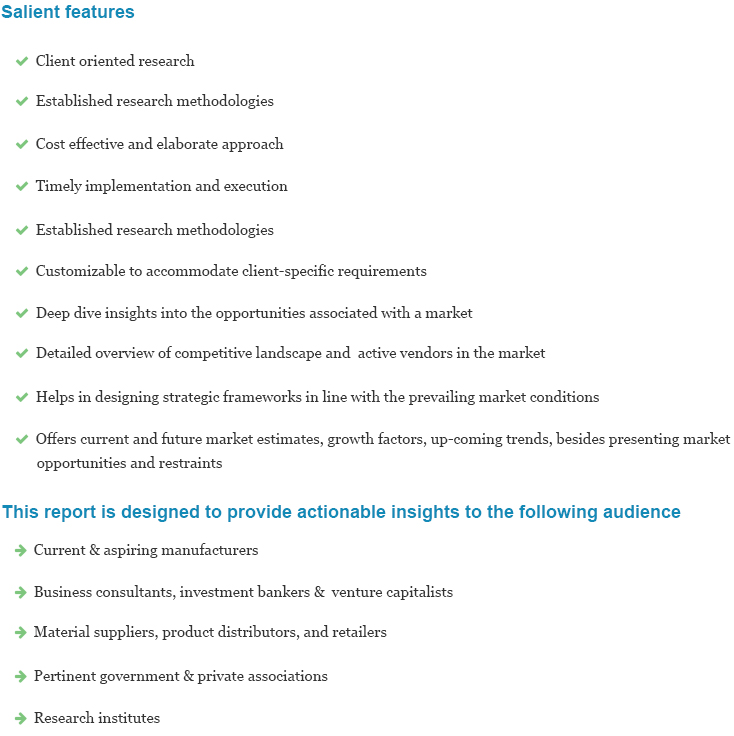
Squalene Market- Market Size, Application Analysis, Regional Outlook, Competitive Strategies and Forecasts, 2016 To 2024
- Published: November, 2015
- Format: Electronic (PDF)
- Number of pages: 98
- Industry: Food Additives & Nutricosmetics
Squalene is a naturally available organic compound that is found in various sources such as shark liver oil, olive oil, amaranth seed, rice bran, wheat germ as well as in some birds. The market for squalene oil is expected to grow at a rapid pace due to its utility in a wide range of products. Squalene has a large demand in the pharmaceutical and the cosmetics industry because of its nutritional and chemopreventive effect. Squalene has been traditionally extracted from shark liver but recently has also been found and extracted from plant sources. Due to its increasing application and usage, the squalene market is expected to grow at CAGR of 10.3% over the forecasted period from 2016 to 2024.
Squalene, traditionally, has multiple medicinal and cosmetic uses and its ability has only been reinforced with recent scientific research and development. Squalene is largely responsible for anti-aging components in skin and is also used as a fat regulator in body, this leading to an ever increasing demand for Squalene in cosmetics industry. Also it has been known to have cancer preventive properties, a strong anti oxidant and known to boost immune system. Due to these properties, Squalene has a large demand in food additives as well as pharmaceutical market, both traditional and advanced.
The wide range of squalene’s uses in different industries coupled with growing demand for food supplements and additives is expected to drive the global demand for squalene. Also there is a widespread acceptance of squalene as a healthy and carcinogenic supplement in people’s perception fueling its growing demand. The increased willingness to pay premium prices and high demand for good quality natural products is expected to drive the growth of this market. Yet, there exist controversies over the extraction of squalene from its sources and the associated quality concerns and lack of material availability. Strict Government regulations and laws regarding poaching of sharks may hinder the growth of squalene market in coming years.
The squalene market is segmented according to its sources in three segments, animal, vegetable and synthetic sources. Of these, the animal sources segment is the largest in terms of market share as majority of squalene is extracted from sharks . But owing to stringent anti-poaching, and growing environmental concerns, this is expected to shift towards vegetable sources. The vegetable sources segment is expected to grow fastest in coming years due to various available options like, olive oil, wheat germ, amaranth oil etc.
The squalene market is further segmented by the end use industry in cosmetic, supplements and pharmaceutical industries. The cosmetics industry is largest share holder of squalene applications largely due to high demand for squalene based products in western countries and is followed by the supplements industry. The cosmetics and supplement industries are expected to grow at moderate rates in years to come due to developing market for these products.
Segmentation of Squalene market based on region is done in five major zones, namely, North America, Asia Pacific (APAC), Europe, Middle East and Africa (MEA), and Latin America. The large demand for cosmetic and dietary supplementary products in the European markets drives it as the largest consumer of the squalene products. Asia Pacific market is expected to grow fastest with the increasing demand for cosmetic products in developing economies like China and India.
Squalene market has many opportunities to expand with developments in new applications and products. Increasing consumer awareness about health issues and the availability of diverse new sources may help it to penetrate new domains and industries. To capitalize on this market many leading companies are adopting new product development and collaborations as key strategies. The investments in Research and Development is increasing with a focus the cosmetics and pharmaceutical industries.
The squalene market is dominated by a few large players like, Sophim (France), Amyris Inc. (U.S.), Kishimoto Special Liver Oil Co. Ltd. (Japan) and SeaDragon Marine Oils Ltd. (New Zealand). Some other players are also present like Nucelis LLC (U.S.), Maruha Nichiro Corp. (Japan), Ekiz Olive Oil and Soap Inc. (Turkey), Empresa Figueirrense de Pesca, LDA (Portugal), and VESTAN (Portugal) etc.
In June 2015, Amyris Inc. (U.S.), launched ‘biossance’ a synthetically made squalene from sugarcane. This, points towards the upcoming trend in the market and the shift towards sustainable product development.

Choose License Type
- World's largest premium report database
- Transparent pre & post sale customer engagement model
- Unparalleled flexibility in terms of rendering services
- Safe & secure web experience
- 24*5 Research support service
